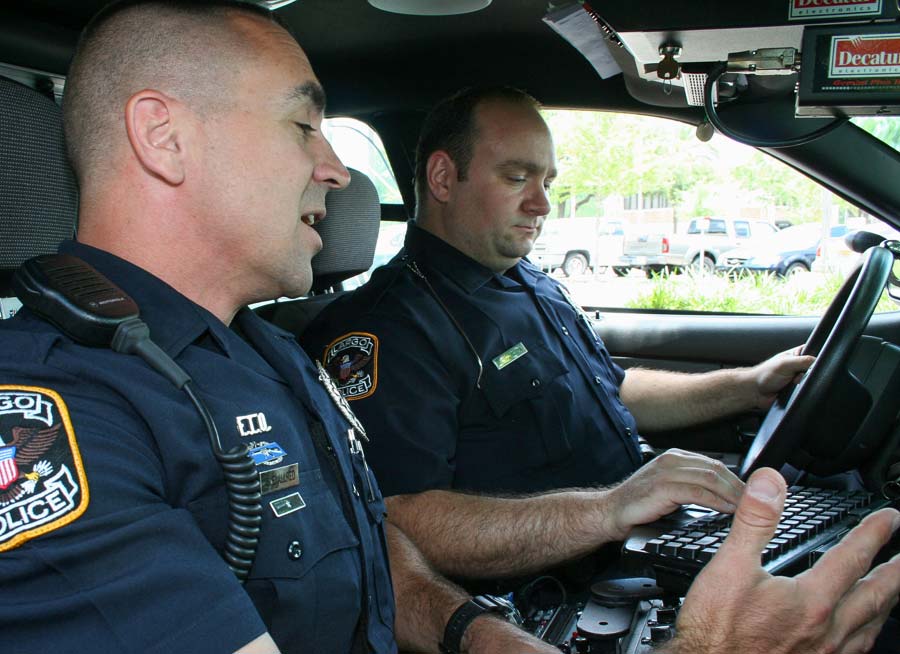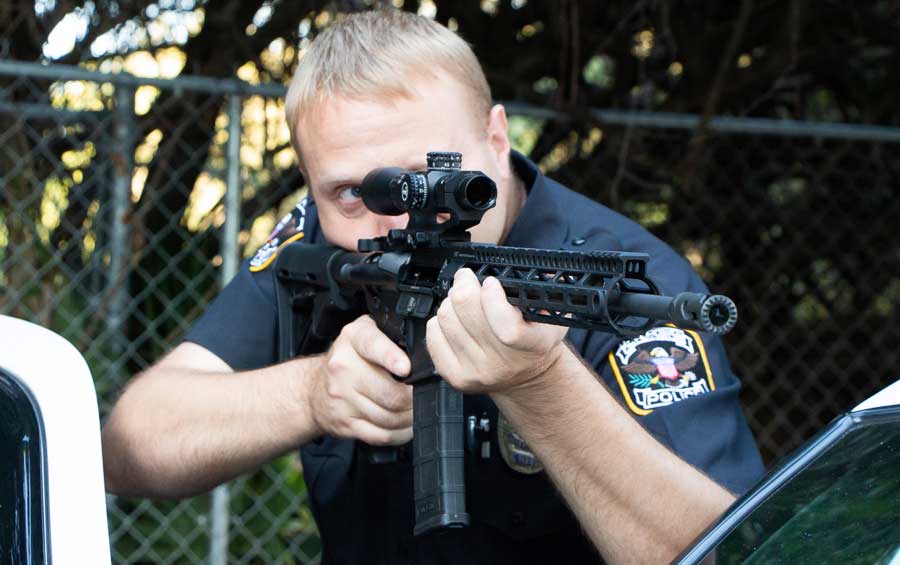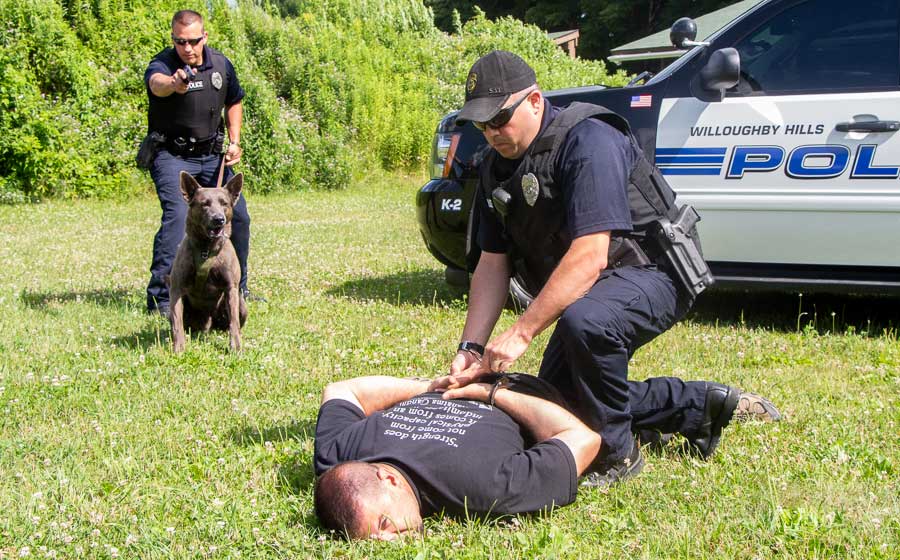
Field training officer is one of the most important assignments in law enforcement.
It is in the police field training program that rookie officers learn how to apply what they learned in the academy, and the field training officer (FTO) can imprint the values of the department on the recruit.
Field training officers shoulder a huge burden, and these articles are here to help.
What is a Field Training Officer?
We’ve stated that the field training officer is one of the most important jobs in any law enforcement agency. But what, exactly, is an FTO and what does he or she do?
A field training officer is an experienced cop with specialized skills who trains new police officers after the academy. A field training officer works with the recruit officer in real-world conditions and helps to bridge the space between classroom training and work as a solo police officer.
In other words, an FTO demonstrates how to use the knowledge a new officer received in the academy on the street when real lives are being affected.
In the field training process, the FTO rides with the rookie and teaches the new officer everything from navigating their jurisdiction and investigating domestic violence complaints to car chases and report writing.
Additionally, the FTO evaluates the recruit’s performance, response to training, strengths and weaknesses. Daily reports are completed to document the training and performance with the goal of helping the rookie improve their performance.
Finally, the FTO acts as a role model for the new officer. It is critical that agencies select the right people to fill the FTO role as the recruits will model their behavior on that of the FTO.
Field Training Officer Qualifications

In most areas, the qualifications to be a field training officer are set by the employing agency. While some states require a specialized training course before the officer can train a rookie, most agencies set very high standards for officers.
The FTO program is a special unit in a law enforcement agency like SWAT or detectives. Therefore, the FTO position is both desirable and held to rigorous standards.
A high level of training and education is a must for the field training officer. However, there are many other characteristics that are desirable in a field training officer. These include:
- excellent communication skills,
- high degree of motivation and self-initiated activity,
- progressing amounts of responsibility in the department,
- positive attitude and image,
- professional appearance, and
- no disciplinary problems.
FTO Education & Training
Field training officers are expected to have advanced training and education in addition to a broad base of experience in law enforcement.
Requirements vary from state to state regarding the education and training needed to be a field training officer. Many states offer a 40-hour training class for new FTOs. The specialized course covers teaching skills, standardized evaluation guidelines, proper daily evaluations of recruits, ethics and safety techniques while training an inexperienced officer.
Depending on your agency, you may need to meet additional education and training requirements.
For example, one agency I worked at required the FTO to be certified to teach in the academy in addition to the state-required FTO course. The same department encouraged people to also be certified to teach firearms and defensive tactics if they wanted to be a field training officer. The agency wanted its FTOs to be able to address as many problems as possible with recruits assigned to them. For the most part, it worked.
Many police departments require a college degree to be hired, with advanced degrees preferred or required for specialized positions. These educational requirements have been trending up.
Even if your department doesn’t require a college degree, having one will give you an edge when applying for the FTO position. Since many agencies give FTOs a higher salary, you can bet that applying for these positions is very competitive.
Field Training Officer Program

A field training program (also called a field training and evaluation program or FTEP) is successful when it can train rookies to be competent police officers capable of working and making decisions without direct supervision. A successful program should also identify recruits who are not suitable as police officers and provide documentation to the department that supports terminating employment.
Keys to building a successful program include:
- clearly identified program goals,
- defined outcomes,
- a process for selecting field training officers,
- a standardized training timeline for recruits with allowances for remedial training when needed,
- a process for graduating competent officers to the uniformed patrol division, and
- a process for terminating unsuitable officer candidates.
Many police field training officer programs are based on the San Jose model program. The San Jose model provides a framework for agencies to implement a successful program.
Agencies using the San Jose model have a training cycle of 16-20 weeks of training after the recruit graduates from the law enforcement academy. This time period includes rotating to three different field training officers for progressively advanced training. At the end of the training cycle, the officer should be ready to perform the duties of a solo beat officer.
Field Training Officer Articles
- Broken Recruits: Common Field Training Problems and Solutions – If you’ve been an FTO for any length of time, you’ve likely had a “challenging” recruit officer that had significant problems in the training program. Richard offers some concrete suggestions for fixing common problems in recruit officers.
- Field Training for the Lateral Hire – Training an officer with experience from another agency is generally easier than a raw recruit, but it is not without its challenges. We take a look at some of the things to consider when training a new officer with experience from another agency.
- Field Training Observations – In this article, we discuss some of the general principles in field training of new police officers. This includes working with the department’s daily observation reports, SEGs and other tools you will need. It also covers ethics and teaching the US Constitution.
- Field Training Officer Burnout – Field training is stressful work in an already stressful career. It is easy to get burned out and begin to teach the wrong set of skills, principles and values to new officers. In this article, we explore the causes of FTO burnout and what agencies and officers can do to deal with it.
- Selecting a Field Training Officer – Guidelines and ideas for picking who is qualified to be a field training officer. Sometimes agencies forget how important the role of field training officer is and do not have a solid selection process in place.
If you are currently an FTO, or have experience as one, we’d love to get your input. Hit the contact form and shoot us an e-mail if you would like to write an article about field training. The law enforcement community has a gaping hole in our training material when it comes to training new recruit officers. We’d like to change that – at least a little – by providing a resource for new and experienced FTO.
Kevin says
Great article.
Richard says
Thanks Kevin. Stay safe out there!